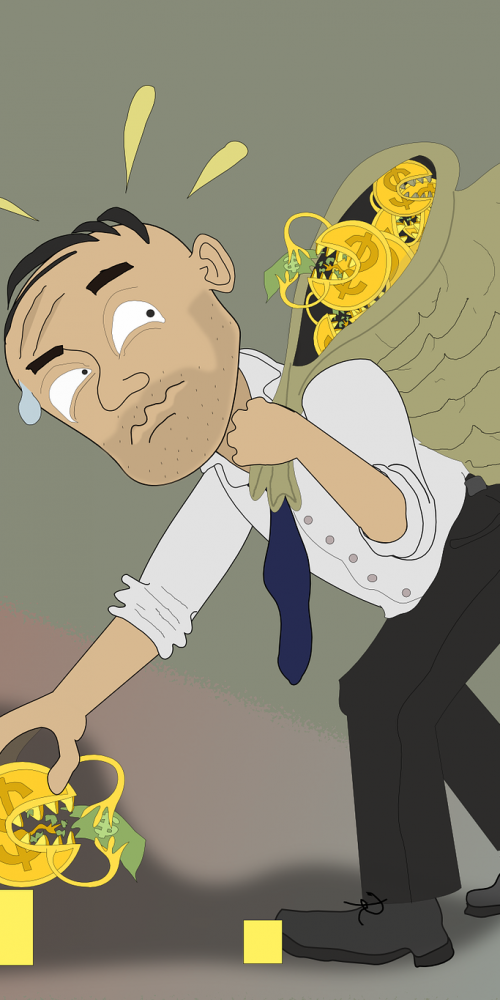 If you’re unfamiliar with Continuous Payment Authorities (CPAs), you are not alone. A significant number of individuals often confuse CPAs with standard payment methods like direct debits or standing orders. This misunderstanding can lead to financial mismanagement and unexpected expenses. It’s crucial to grasp the distinctions between these payment methods, as they each come with their own set of features and implications for your personal finances. The knowledgeable team at Debt Consolidation Loans is dedicated to helping you navigate this sometimes challenging financial landscape, offering detailed insights into the operation of CPAs and their influence on your budgeting strategies.
If you’re unfamiliar with Continuous Payment Authorities (CPAs), you are not alone. A significant number of individuals often confuse CPAs with standard payment methods like direct debits or standing orders. This misunderstanding can lead to financial mismanagement and unexpected expenses. It’s crucial to grasp the distinctions between these payment methods, as they each come with their own set of features and implications for your personal finances. The knowledgeable team at Debt Consolidation Loans is dedicated to helping you navigate this sometimes challenging financial landscape, offering detailed insights into the operation of CPAs and their influence on your budgeting strategies.
Although Continuous Payment Authorities might seem similar to direct debits, they differ significantly in one critical way: CPAs do not provide the same protective guarantees that direct debits do. This lack of consumer protection means that businesses authorized to withdraw funds can access your account on any date and for any amount at their discretion. Such flexibility can create unexpected financial stress for consumers, especially if they aren’t diligently monitoring their accounts. Recognizing this important difference is essential for retaining control over your finances and preventing surprise deductions that can disrupt your budget.
Conversely, the direct debit guarantee is designed to offer substantial consumer protection, stating that payments can only be processed on or around a specific date and for a predetermined amount. This agreement is formalized through a written contract that both parties sign, ensuring transparency and security in the transaction process. In contrast, many Continuous Payment Authorities operate without such formal agreements, which can expose consumers to unexpected charges and ongoing financial difficulties. Gaining a clear understanding of these distinctions empowers you to make informed decisions regarding your payment methods and financial commitments.
Gain Control Over Your Finances: Understand Continuous Payment Authorities
Identifying a Continuous Payment Authority can be relatively straightforward. For instance, if you see a recurring charge on your credit card statement, it likely indicates a CPA, as direct debits and standing orders cannot be set up using credit card accounts. Furthermore, while initiating a direct debit only requires your bank’s sort code and account number, a business that requests your complete card number is likely establishing a CPA. By remaining vigilant about how your payments are initiated, you can manage your finances more effectively and avoid potential pitfalls.
You possess the right to cancel a Continuous Payment Authority by informing the relevant company or your bank. If you ask your bank to cancel a CPA, they are legally required to comply, halting any further payments from being processed. This action is crucial for protecting your finances and preventing unauthorized withdrawals from disrupting your budget. Being proactive in managing your CPAs allows you to maintain control over your financial commitments, thereby ensuring your resources are allocated according to your priorities.
Many businesses opt to use Continuous Payment Authorities for their convenience. This includes fitness centers, online services like Amazon for their Prime and Instant Video subscriptions, and various payday loan providers. If you find it necessary to cancel a CPA through your bank, it is equally important to notify the company involved in the transaction. If you are bound by a contract with them, make sure to explore alternative payment methods to avoid any disruption in service, especially if the contract is still in effect. Being thorough in your approach to managing your financial engagements can help you sidestep potential challenges.
Explore More Valuable Articles Our Readers Appreciate:
 The Death of Cash in Modern Times
The Death of Cash in Modern Times
The Death of Cash in Modern Times
 Furlough Rights Explained: Know Your Entitlements
Furlough Rights Explained: Know Your Entitlements
Furlough Rights Explained: Know Your Entitlements
 Debt Among Pensioners: Understanding the Challenges
Debt Among Pensioners: Understanding the Challenges
Debt Among Pensioners: Understanding the Challenges
 UK Debt Statistics: Will You Be Impacted?
UK Debt Statistics: Will You Be Impacted?
UK Debt Statistics: Will You Be Impacted?
 Helping Vulnerable Children: Marks and Spencer’s New Initiative
Helping Vulnerable Children: Marks and Spencer’s New Initiative



It’s fascinating how easily these financial concepts can blur together, isn’t it? I’ve had my own share of confusion between CPAs and direct debits, especially when setting up recurring payments for services like subscriptions. The emphasis on the lack of protection with CPAs really strikes a chord—I’ve had experiences where businesses did not honor my requests to stop payments, which definitely introduced unexpected financial stress.